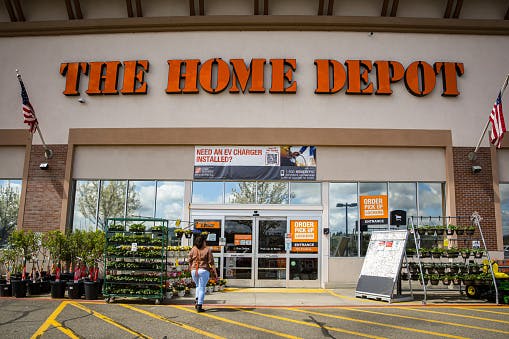America’s DIY boom is over — and Home Depot is moving on with a $4.3 billion pivot
The retailer is doubling down on contractors and builders.
As homeowners scale back renovations, America’s largest home improvement retailer is betting big on who’s still spending.
On Monday, Home Depot announced it will acquire GMS, a major building-products distributor, for $4.3 billion. The deal would bring GMS under Home Depot’s SRS Distribution — a supplier to roofing and landscaping contractors, which the company bought last year in its largest acquisition to date.
The move comes as Home Depot pivots harder toward “Pro” customers like contractors and other home professionals — as the average homeowner pulls back on their DIY ambitions.
The great American home makeover
During the pandemic, record-low mortgage rates and stay-at-home life sparked a nationwide renovation spree. Consumers started upgrading everything — from patios and decks, to living rooms and kitchen islands — pushing total home improvement spending to a record $515 billion by late 2022, according to Harvard’s Joint Center for Housing Studies. But that momentum didn’t last.
In a similar way to how e-commerce sales exploded in the pandemic, and then reverted to their trend growth in the years after, homeowners have pulled away from large-scale renovations — with rising borrowing costs and slower home sales leading to fewer projects.
Spending on home improvement shrank for eight straight quarters before a modest rebound in early 2025 — and retailers have already felt the slowdown. In 2023 and 2024, both Home Depot and Lowe’s reported declines in comparable sales.
Going Pro
Unlike DIY-ers, however, contractors and tradespeople are more insulated from the housing market cycle: they purchase regularly, in bulk, for jobs that happen year-round — not just when rates are low. Which is why both retailers are leaning hard into this group. Pro customers already account for about half of Home Depot’s sales, while Lowe’s, where Pro makes up around 30%, is working to expand that share. In April, the company acquired Artisan Design Group, a supplier to homebuilders and property managers, and the CEO expects Pro to outperform DIY this year.
